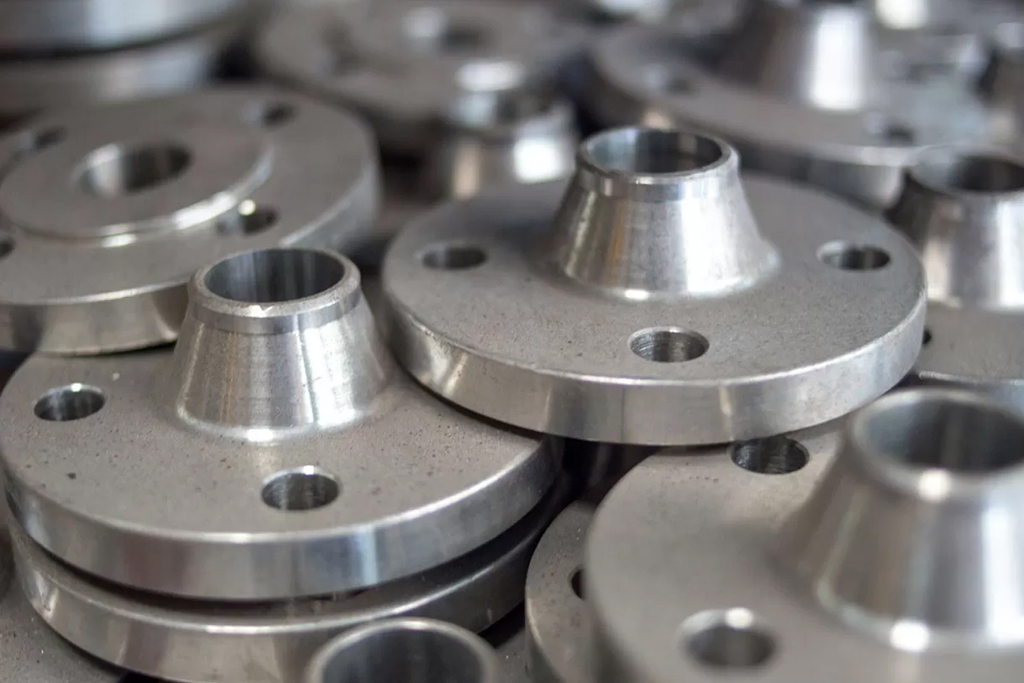1) Introduction:
Industries like chemical processing, petrochemicals, and pharmaceuticals face a constant challenge — corrosion. Conventional stainless steel flanges often succumb to highly acidic environments, leading to system failures, safety concerns, and soaring maintenance costs. The need for a robust, corrosion-resistant, and long-lasting solution became imperative.
Enter Alloy 20 flanges — engineered to thrive where others fail.
2) Product Introduction:
Alloy 20, also known as Carpenter 20 or UNS N08020, is a highly corrosion-resistant austenitic alloy designed primarily for applications involving sulfuric acid. Alloy 20 flanges are pipe fittings used to connect pipes, valves, pumps, and other equipment, ensuring a sealed and secure flow system in harsh environments.
These flanges are manufactured under global standards such as:
ASTM B462 / B564
ASME SB462 / SB564
ASTM B122 / ASME SB122 (for plates and sheets)
Top Alloy 20 Flanges Manufacturers in India produce them in various types: Weld Neck, Slip-On, Socket Weld, Blind, and Threaded, offering versatility across multiple applications.
3) Advantages of Alloy 20 Flanges
✅ Exceptional resistance to sulfuric acid and other aggressive chemicals
✅ Superior mechanical properties with excellent tensile strength
✅ Resists pitting, crevice corrosion, and stress corrosion cracking
✅ Easy fabrication and welding compared to other high-performance alloys
✅ Compliance with ASTM and ASME international standards
✅ Long service life, reducing downtime and replacement costs
4) Real-Life Applications
Alloy 20 flanges are widely used in:
???? Chemical processing plants (especially for handling sulfuric, nitric, and phosphoric acids)
???? Pharmaceutical manufacturing systems
⛽ Petrochemical and refineries
???? Food and beverage industries (due to non-reactive characteristics)
???? Water treatment and desalination plants
These applications demand high durability, resistance to corrosion, and leak-proof connections, all of which Alloy 20 flanges deliver consistently.
5) Solving the Problem: How Alloy 20 Flanges Changed the Game
Before the adoption of Alloy 20, industries relied on carbon steel or standard stainless steel flanges that failed prematurely in acidic environments. The shift to Alloy 20 flanges has led to:
???? Enhanced system integrity and safety
???? Significant cost savings on maintenance and replacements
???? Improved reliability and extended service cycles
????️ Reduced downtime due to fewer failures and replacements
Alloy 20 Flanges Exporters have noted a marked increase in demand, especially from international markets that prioritize safety and operational efficiency.

6) Conclusion: A Future-Ready Investment
Alloy 20 flanges are not just components — they are critical enablers of performance in corrosive and high-stress environments. For any industry that values safety, efficiency, and long-term reliability, switching to Alloy 20 flanges is a smart and strategic investment.
If you’re seeking quality assurance and global compliance, always choose trusted Alloy 20 Flanges Manufacturers in India that adhere to ASTM B122 / ASME SB122 standards.